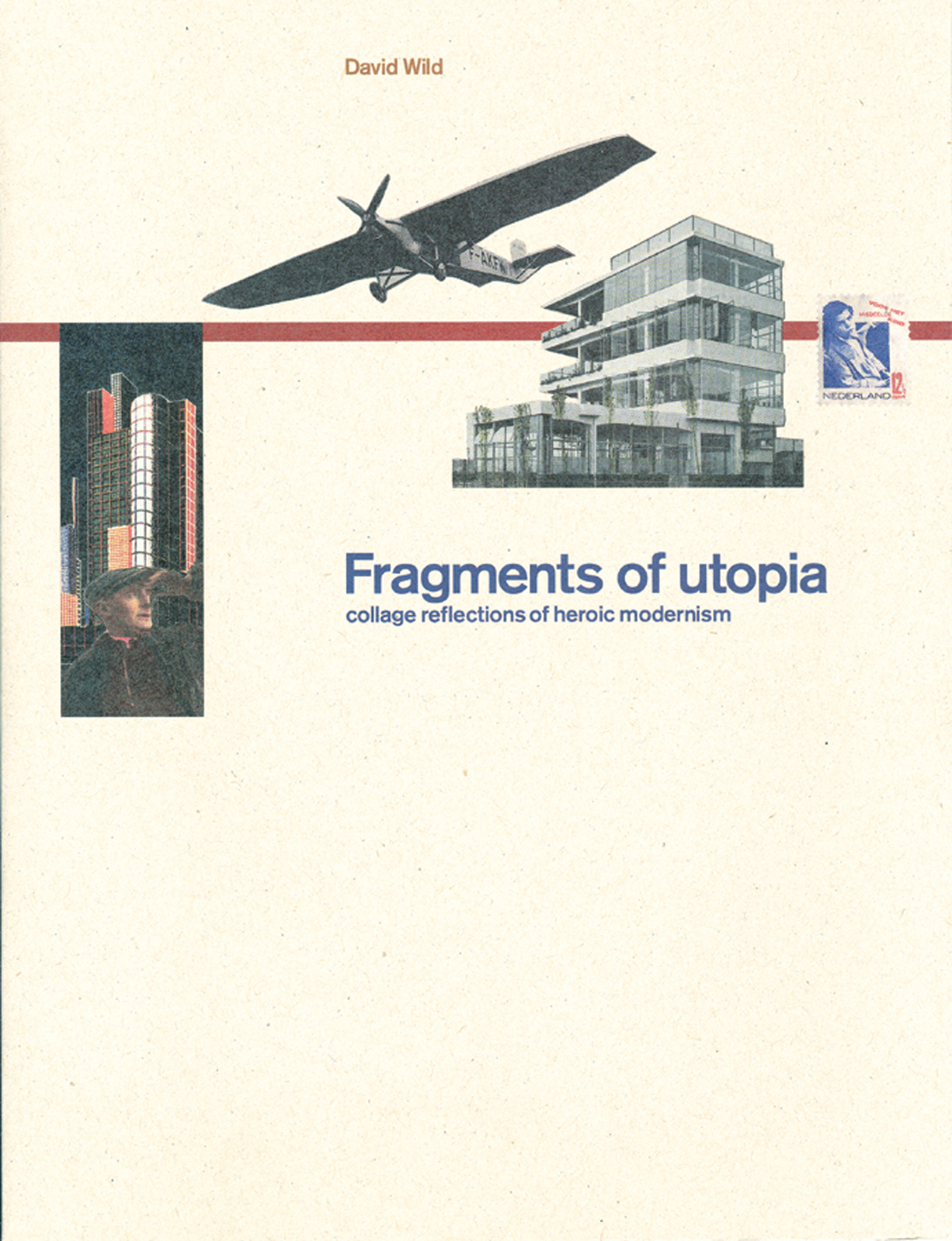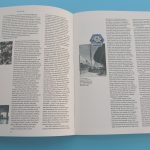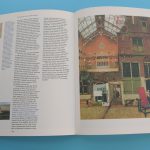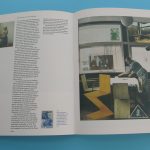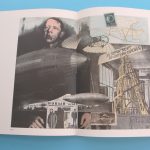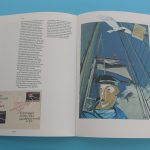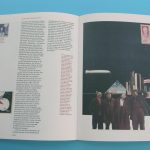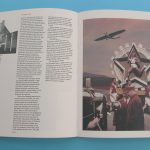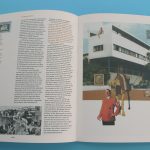A set of collages made from mainly contemporary sources, which recount episodes in modernist architecture in the twentieth century. This is a story of a fragile and occasionally noble dream, in the context of a history going violently wrong. These images are supplemented by short parallel prose meditations. Wild’s images have a wonderful rightness of form. But they are far from idealized: politically charged, they have a disconcerting sense of erotics and low humour.
Contents
Introduction
The Netherlands: the model republic
USSR: what was to be done
Three continents: Le Corbusier’s utopianism
Bibliography
Acknowledgements
Synopsis
The book reproduces a series of the collages made by David Wild. Their subject is modern architecture in the first half of the twentieth century: in the Netherlands, in Russia, and in the work of Le Corbusier. The method of the book is to show a collage on a right-hand page; then on the facing page is a prose commentary by Wild and supporting smaller images.
Introducing the book, David Wild explains that the impulse for this work lies in the aftermath of a fire in his house: his scorched books lent themselves to collage. He goes on to sketch the cultural-political climate in Britain over the last 40 years: the backdrop to his work as an architect and (less directly) to this book.
In the opening section on the Netherlands, the leading theme is an architecture of social equity and continuity. Rooted in old cultural traditions, and in the particular ‘football-pitch’ landscape of the country, modern architecture could realise some of its dreams in everyday buildings. Postage stamps play an active part in many of the book’s collages, and especially in this section: the design of stamps flourished in the Netherlands, through the enlightened patronage of the Dutch post office – with several architects designing stamps too.
Politics and history come to prominence in the Russian section, as a motivating force in the work of the early 1920s, and then as a heavy burden – with the onset of totalitarian control and repression. At the centre of the discussion here is the architecture of constructivism: formally brilliant, but with a clear social programme. Flight and the exploration of space are recurring topics in this section, as another and particularly Russian dimension of utopian striving.
The work of Le Corbusier, in Europe, North and South America, Russia and India, is treated in the third section. Le Corbusier is presented as a brilliant artist, a master architect of the greatest skill and the greatest ambition – and without scruple in pursuing commissions. The images and text follow him into the years after the Second World War, culminating in the work in India. Here there is a vision of another kind of politics, of co-operation and non-violence.
Fragments of utopia has been printed in the Netherlands by one of the best colour printers (Drukkerij Rosbeek). The book’s design and manufacture seek to match the ideals of its topic: an artefact with distinct material qualities, and fully serviceable.
Reviews
While David Wild has made his mark as an architect and builder, teacher and writer, we have had to wait a long time for this, his first book. As we might expect from Wild, however, the book is much more than mere words and pictures. Delve deeper and it reveals something of a personal manifesto by this lifelong agent provocateur, with both the beautiful collages and their accompanying texts assembled with perfection and wit.
Architecture Today, no. 89, 1998
With his extraordinary self-build house in north London, David Wild demonstrated his deep understanding of the Modern Movement. Sophisticated in its planning and knowing in its details, it stands among the best British buildings of its time.
Now Wild has produced an exemplary work in another medium: a book of collages accompanied by short essays. He discovered and fell in love with the Modern Movement in the 1960s when it was still credible in its own terms, eagerly exploring its monuments and consuming its propaganda. He has since spent half a lifetime ruminating on the brave scale of its aspirations, regretting the collapse of so many of its promises, and coming to a painful understanding of the gap between architects’ visions and political reality. The love is still there, even if the contradictions remain digestible only with a heavy dose of irony.
‘Fragments of utopia’ is a moving, amusing, and sometimes savagely ironic sideways look at the Modern Movement, skilfully composed and beautifully produced. The collages nicely complement the short texts, cheeky in their juxtaposition of people and places, and with apt use of postage stamps as temporal icons.
Peter Blundell Jones, Architectural Review, September 1998
